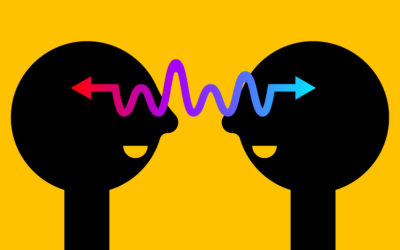Quick Hits
Daily brief research updates from the cognitive sciences

Many of you may have seen a version of the legendary marshmallow experiment in which children are asked to resist the temptation to eat a marshmallow now in return for an additional marshmallow when the adult returns.
In these experiments the marshmallow is placed right in front of the children thereby tempting them and really testing their willpower and ability to control their temptation to scoff the juicy marshmallow. This goes back to research in 1972 by Mischel of Stanford that showed that children with greater self-control were more likely to have better life outcomes: get a better job, go to college, etc.
This self-control is linked to higher intelligence, because of its relationship to so-called top-down control i.e. the more advanced areas of the brain sitting in the front control the more primitive emotional areas of the brain.
However, human beings are not the only creatures to be able to exert self-control and this has also been shown in chimpanzees, and interestingly cuttlefish also! In these other species this is also associated with intelligence. Yes, there appear to be intelligence test for chimps and cuttlefish.
Alexandra Schnell and colleagues have now researched jays, particularly smart birds belonging to the corvid family. They have to use careful strategies to hide their food from other birds – but does this more advanced cognitive ability also translate into actual self-control?
Well, you can’t offer birds marshmallows, but you can offer jays mealworms, the jay equivalent of a tasty, spongy marshmallow. In this experiment they could eat bread and cheese now or wait for a transparent door to open which would give them a tasty mealworm – but only if they had resisted the temptation to eat the bread and cheese.
Some of these birds waited up to five minutes to get their reward: a jay called JayLo being the best at five and a half minutes – and Homer coming in bottom of class only managing 20 seconds. The birds were then tested on various tasks, to measure their intelligence. And yes, those that performed better on these tasks had better self-control. Similar to human beings they also noted a general intelligence factor i.e. if a bird did well on one cognitive task, they tended to do well on all the cognitive tasks.
What I also found interesting in the study is that the birds use strategies that we human beings also use to avoid temptation such as avoiding to look at the source of temptation – this is also linked to forms of self-control I wrote about here in that changing the environment, avoiding temptation in the first place, is one of the most effective strategies.
But for now, we now know that jays are indeed smart birds, can exert self-control and this is linked to intelligence. Just like us human beings.

Andy Habermacher
Andy is author of leading brains Review, Neuroleadership, and multiple other books. He has been intensively involved in writing and research into neuroleadership and is considered one of Europe’s leading experts. He is also a well-known public speaker, speaking on the brain and human behaviour.
Andy is also a masters athlete (middle distance running) and competes regularly at international competitions (and holds a few national records in his age category).
References
Alexandra K. Schnell, Markus Boeckle, Nicola S. Clayton.
Waiting for a better possibility: delay of gratification in corvids and its relationship to other cognitive capacities.
Philosophical Transactions of the Royal Society B: Biological Sciences, 2022; 377 (1866)
DOI: 10.1098/rstb.2021.0348
More Quick Hits
The Surprising Effectiveness of Coaching in Diminishing Burnout Symptoms
Different areas of the brain are associated with empathy – this new research shows how brain regions synchronise to induce empathic responses.
When Love Overrides Other Needs
Different areas of the brain are associated with empathy – this new research shows how brain regions synchronise to induce empathic responses.
The Negative Social Impact of Dealing with AI in the Workplace
Different areas of the brain are associated with empathy – this new research shows how brain regions synchronise to induce empathic responses.
How the Gut Influences Brain Development in Babies
Different areas of the brain are associated with empathy – this new research shows how brain regions synchronise to induce empathic responses.
Your Brain’s Own Cannabinoid Molecules Calm You Down
Different areas of the brain are associated with empathy – this new research shows how brain regions synchronise to induce empathic responses.
Role of Dopamine in Speed and Accuracy of Decisions
Different areas of the brain are associated with empathy – this new research shows how brain regions synchronise to induce empathic responses.






